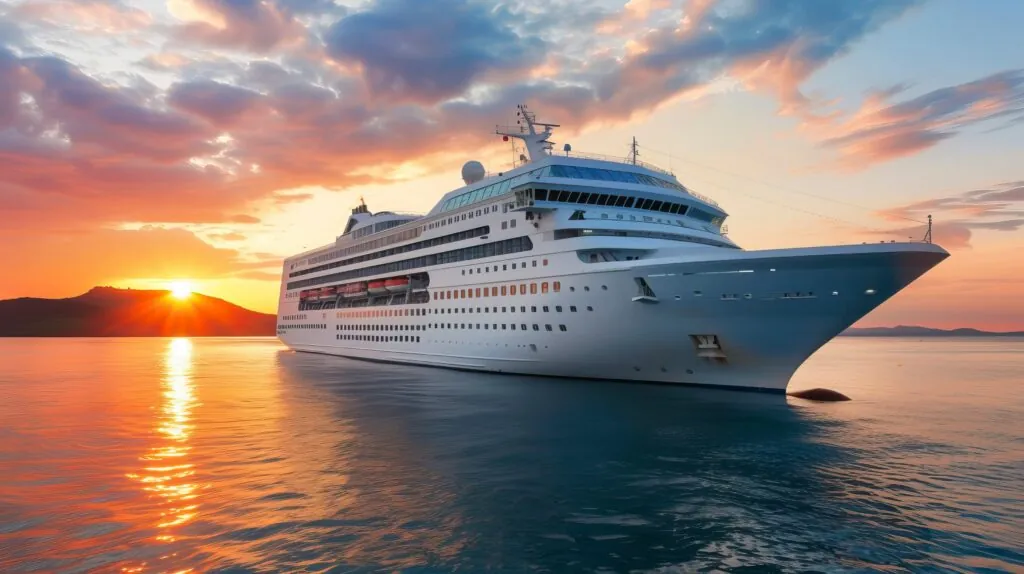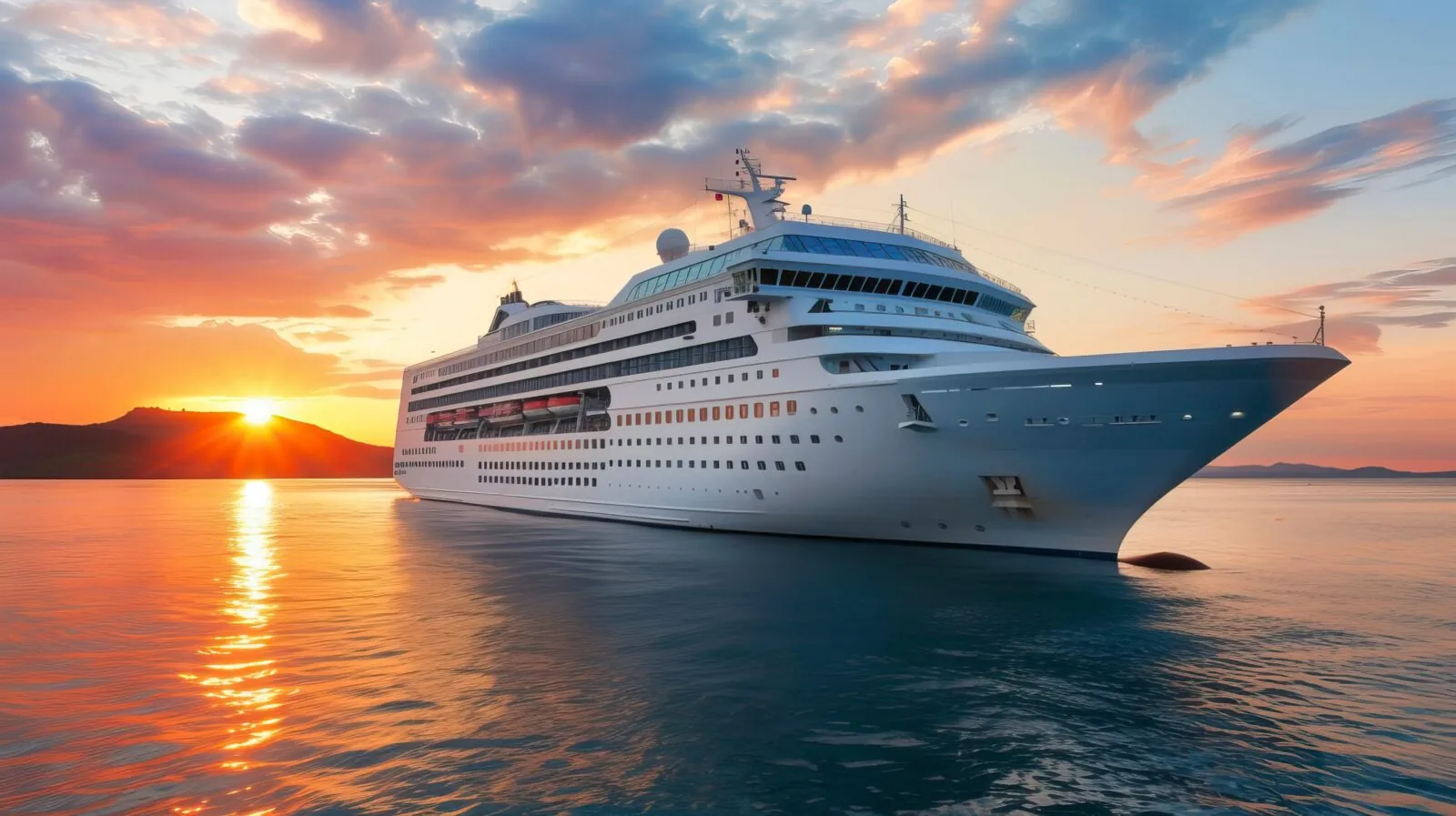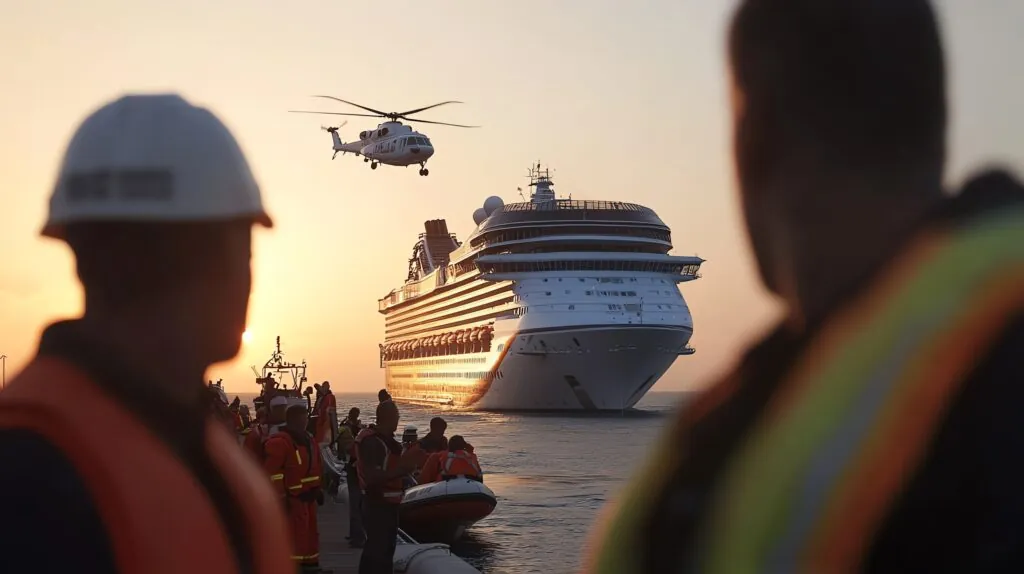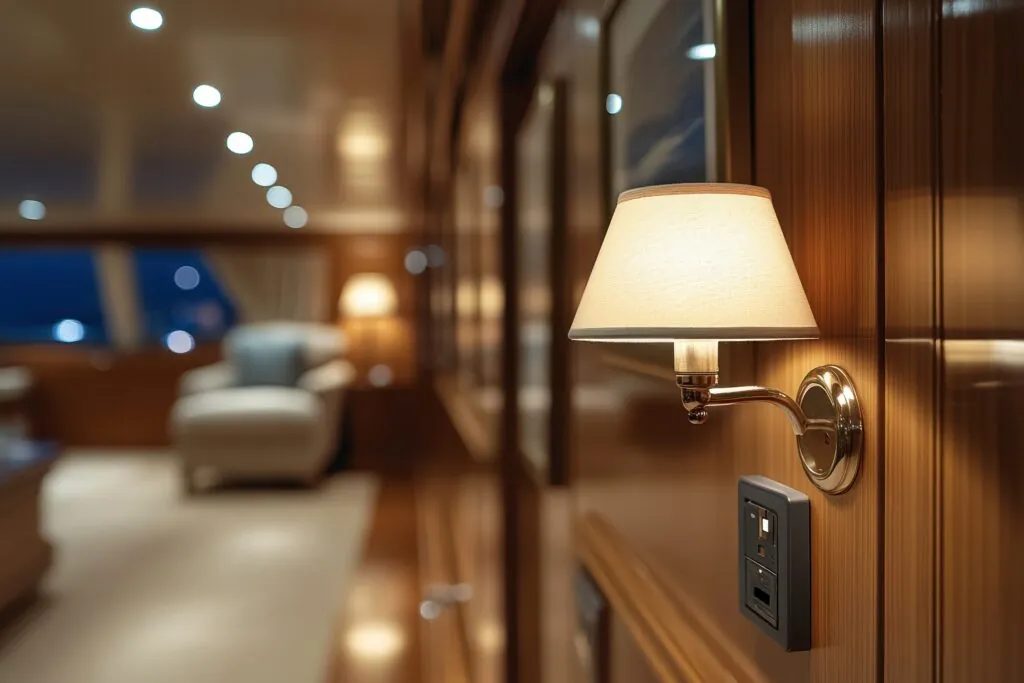How Alcohol Incidents on Cruises Can Lead to Liability Claims
Cruise vacations are synonymous with luxury, relaxation, and entertainment. Passengers embark on these floating resorts expecting an enjoyable experience filled with fine dining, world-class performances, and indulgent amenities—including bars and lounges that serve alcohol late into the night.

While responsible alcohol consumption is not a problem, excessive drinking on cruise ships has led to numerous injuries, altercations, and even fatalities. Some passengers suffer from alcohol poisoning, while others engage in physical fights or experience slip-and-fall accidents due to intoxication. In the worst cases, alcohol consumption has played a role in overboard incidents, resulting in tragic deaths at sea.
The critical legal question in such cases is: Can a cruise line be held liable for alcohol-related injuries?
This article explores the issue of cruise ship alcohol liability, outlining the legal obligations of cruise lines, common alcohol-related accidents, and passenger rights in seeking legal action for injuries. Whether you are a concerned traveler or a legal professional handling maritime claims, this guide provides valuable insights into liability, dram shop laws, and negligence lawsuits.
Can Cruise Lines Be Held Liable for Alcohol-Related Incidents?
How Cruise Ships Sell and Serve Alcohol
Unlike bars or restaurants on land, cruise ships operate under international maritime law, which allows them to set their own alcohol policies. Many cruise lines offer unlimited drink packages, allowing passengers to consume large amounts of alcohol throughout the day.
Bars and lounges on cruise ships often serve alcohol until early morning hours, and bartenders may not always monitor how much a passenger has consumed. Some cruise staff prioritize profits over safety, continuing to serve passengers who show visible signs of intoxication.
This lack of regulation can lead to dangerous situations. If a heavily intoxicated passenger causes an accident, the cruise line may be held responsible for overserving alcohol and failing to enforce safety protocols.
Duty of Care: What Are Cruise Lines Responsible For?
Cruise lines have a legal duty of care to protect passengers from foreseeable harm. This means that they must:
- Serve alcohol responsibly, refusing service to intoxicated passengers.
- Monitor passenger behavior in bars and public areas.
- Intervene when a passenger is visibly intoxicated and at risk of harming themselves or others.
- Ensure security personnel respond appropriately to alcohol-related incidents.
When cruise lines fail in these responsibilities, they can be sued for negligence if a passenger is injured due to overserving or lack of intervention.
Understanding Cruise Ship Dram Shop Laws
How Do Dram Shop Laws Work?
On land, Dram Shop Laws hold bars, restaurants, and liquor stores responsible for injuries caused by overserving alcohol to an intoxicated person. If a bar continues to serve an obviously drunk patron who later causes a car accident, fight, or injury, the establishment can be held legally accountable.
Do Dram Shop Laws Apply to Cruise Ships?
Cruise ships do not always follow the same Dram Shop Laws as land-based businesses. Since cruise lines operate in international waters and are often registered in foreign countries, they are not necessarily bound by the alcohol liability laws of the United States or other home countries of their passengers.
However, there have been lawsuits against cruise lines for alcohol-related injuries, where courts have ruled that cruise operators have a duty to prevent excessive drinking. If a cruise company has alcohol policies in place but fails to enforce them, they may still be found liable under negligence laws.
Common Alcohol-Related Injuries on Cruise Ships
Slip-and-Fall Accidents Due to Intoxication
One of the most common alcohol-related incidents on cruise ships is slip-and-fall accidents. Cruises feature wet pool decks, crowded dance floors, steep staircases, and narrow hallways, which can be hazardous for intoxicated passengers.
If a drunk passenger slips and falls, they may suffer concussions, broken bones, or even spinal cord injuries. These accidents are often worse at sea, where medical facilities are limited, and emergency treatment may be delayed.
If cruise bartenders continue serving alcohol to an already intoxicated guest, and that guest suffers an injury, the cruise line could be held responsible for negligence.
Alcohol-Related Assaults and Fights
Alcohol consumption is known to lower inhibitions and increase aggression, which can lead to verbal and physical altercations among passengers. Some cruise passengers engage in fights after excessive drinking, resulting in serious injuries for those involved.
Security officers on a cruise ship are responsible for monitoring passenger behavior and preventing fights. If a violent altercation occurs and security fails to intervene in time, the cruise line could be sued for failing to provide a safe environment.
Overboard Incidents and Alcohol Poisoning
Some of the most tragic alcohol-related accidents on cruise ships involve passengers falling overboard. Many of these incidents occur after heavy drinking, with passengers losing their balance near railings or engaging in dangerous behavior.
Alcohol poisoning is another significant concern. Some passengers consume excessive amounts of alcohol, leading to loss of consciousness, vomiting, or seizures. If cruise staff fail to recognize alcohol poisoning symptoms and do not call for medical assistance, they could be held liable for failing to provide adequate care.
Passenger Rights and Legal Recourse
Can You Sue a Cruise Line for Alcohol-Related Injuries?
Passengers who are injured due to alcohol-related incidents may be able to file a lawsuit against the cruise line. However, maritime personal injury claims are different from standard lawsuits, as they involve international laws and contracts.
How to Prove Cruise Line Negligence
To hold a cruise line accountable, an injured passenger must prove that:
- A bartender or cruise staff overserved a visibly intoxicated passenger.
- The intoxicated person caused an accident, injury, or violent altercation.
- The cruise line failed to enforce its alcohol policies or intervene in a timely manner.
If there are eyewitness testimonies, surveillance footage, or cruise security reports, these can be used as evidence in a lawsuit.
Compensation for Alcohol-Related Injuries
Passengers who win lawsuits against cruise lines may receive compensation for:
- Medical expenses, including emergency treatment and long-term rehabilitation.
- Lost wages, if the injury prevents them from returning to work.
- Pain and suffering, including emotional distress caused by the incident.
How to Stay Safe on a Cruise
Cruise Line Alcohol Policies and Safety Tips
Most major cruise lines have alcohol service policies, but enforcement is inconsistent. Passengers can take the following steps to protect themselves from alcohol-related dangers:
- Drink responsibly and be aware of personal alcohol limits.
- Stay in groups so friends can monitor each other’s intoxication levels.
- Avoid drinking near railings, pools, and staircases where falls are more likely.
- Report overly intoxicated individuals to cruise security if they appear at risk of harming themselves or others.
If you witness an alcohol-related altercation or injury, report it immediately and document the situation if possible.
Frequently Asked Questions (FAQs) on Cruise Ship Alcohol Liability
Can I sue a cruise line for overserving alcohol?
Yes, it is possible to sue a cruise line if their staff overserved alcohol to a passenger who was already visibly intoxicated and that passenger caused harm. Cruise ships have a duty to serve alcohol responsibly and prevent dangerous situations from arising due to excessive drinking. If bartenders or servers continued serving an intoxicated passenger who later caused an injury, the cruise line may be found negligent.
What should I do if I am injured by a drunk passenger on a cruise?
If you are injured by a drunk passenger, report the incident immediately to cruise security and request medical attention. It is important to document the situation by taking photos of any visible injuries and obtaining statements from witnesses. If possible, ask security for a copy of their report. Seeking legal advice as soon as possible will help you determine whether you have a claim against the cruise line for negligence.
Are cruise ships required to stop serving intoxicated passengers?
Most cruise lines have policies stating that staff should refuse service to passengers who are visibly intoxicated. However, enforcement of these policies is inconsistent. Some bartenders continue serving alcohol to passengers even when they appear heavily intoxicated, either due to lax oversight or because the cruise encourages high alcohol sales. If overserving leads to an accident, the cruise company may be held liable for not following its own alcohol policies.
What happens if I am assaulted by a drunk passenger on a cruise?
If you are assaulted by a drunk passenger, report the incident to cruise security immediately. Request medical treatment if needed and ask for a copy of the security report. Try to obtain witness statements and, if possible, document the scene with photos. Depending on the severity of the assault, you may have grounds for a legal claim against the cruise line for failing to intervene or for overserving the intoxicated passenger who committed the assault.
What legal options do I have if I am injured due to alcohol-related negligence on a cruise?
If you are injured due to alcohol-related negligence, you may have the right to file a personal injury lawsuit against the cruise line. To build a case, you will need to prove that the cruise staff overserved alcohol or failed to intervene when an intoxicated passenger became a danger. Compensation may include medical expenses, lost wages, pain and suffering, and other damages. A maritime injury attorney can help you assess your legal options.
Contact The Cruise Injury Law Firm Today
Alcohol-related incidents on cruise ships can have serious consequences, from minor injuries to life-threatening accidents. While cruise lines should enforce responsible alcohol service, many fail to do so, resulting in passenger injuries and legal claims.
If you or a loved one has been injured due to alcohol negligence on a cruise, it is important to take legal action. Contact us today to schedule a free consultation.






